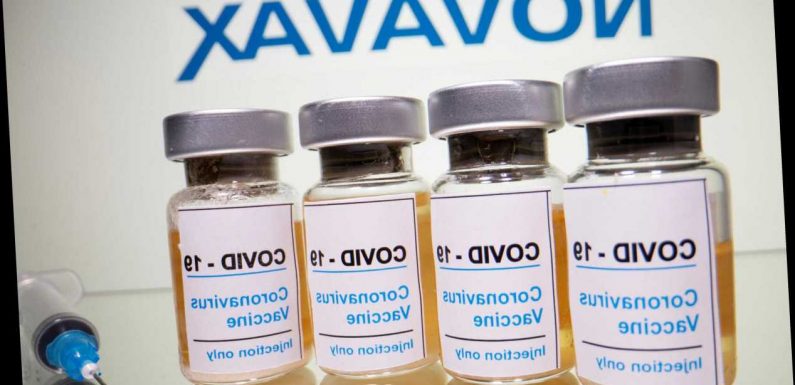
A FOURTH Covid vaccine could be approved for us in the UK within weeks after late-stage trials showed it was 89 per cent effective.
Sixty million doses of the Novavax vaccine – which was also found to be effective against the Kent variant of Covid – will be produced in Teesside.
? Read our coronavirus live blog for the latest news & updates
Almost 7.5 million Brits have been given their first dose of a Covid vaccine and the rollout is seen as the country's best hope of ending the pandemic.
The UK is already distributing jabs by Pfizier/BioNTech and Oxford/AstraZeneca, with Moderna's given the green light.
But what makes the Novavax coronavirus vaccine different? Here's what you need to know…
Who owns Novavax?
Novavax are a a small biotech company based in Maryland, United States, which develops next-generation vaccines for serious infectious diseases.
The US-firm says on its website: "The company’s proprietary recombinant technology platform combines the power and speed of genetic engineering to efficiently produce highly immunogenic nanoparticles designed to address urgent global health needs."
Where is the vaccine made?
Novavax's vaccine will be made in the UK, once it's got regulatory approval.
Stan Erck, chief executive of Novavax, told the BBC a manufacturing plant in Billingham, Stockton-on-Tees, should be up and running by March or April.
The factory, owned by Fujifilm, has capacity to ramp up production to 180million doses.
The company is hoping to get approval for the vaccine from the UK's Medicines and Healthcare products Regulatory Agency (MHRA) around the same time.
The Novavax jab would be delivered in the second half of 2021 if it receives MHRA approval.
How does the Novavax vaccine work?
The Novavax vaccine works like other vaccines by teaching the immune system to make antibodies to the coronavirus spike protein.
Researchers inserted a modified gene into a virus, called a baculovirus, and allowed it to infect insect cells.
Spike proteins from these cells were then assembled into nanoparticles which, while they look like coronavirus, cannot replicate or cause Covid-19.
These nanoparticles are then injected into the body via the vaccine where the immune system mounts an antibody response.
If the body encounters coronavirus in the future, the body is primed to fend it off.
What makes it different to the other jabs?
Novavax’s candidate differs from those currently being used in the UK, as it combines an engineered protein from the virus that causes Covid-19 with a plant-based ingredient to help generate a stronger immune response.
The Government says that having a diverse portfolio of vaccines increases the chances of ensuring there is a vaccine available for everyone across the UK.
While the jabs from Pfizer/BioNTech and Moderna need to be kept at ultra-low temperatures, the Novavax jab is stable for up to three months in a normal fridge.
The jab should be available in the second half of this year and is being manufactured in Teeside.
Was the jab tested in the UK?
Trials of the jab were carried out in the UK when the new Covid-19 variant was first observed in Kent and began to circulate widely.
More than 15,000 people in the UK took part in the clinical trial, which was supported by the UK National Institute for Health Research.
Some 27 per cent of those in the UK were over the age of 65.
The study assessed how effective the vaccine was when transmission of Covid-19 was high in the UK, and with the variant strain identified in the UK circulating widely.
The analysis, based on the first 62 cases of Covid-19 identified in the trial, reported 56 cases in people given a placebo (dummy) vaccine while six cases were in those given the vaccine.
More than half of cases related to the UK strain of the virus, with the vaccine offering 86 per cent protection against this strain.
Against the original strain that has circulated since the start of the pandemic, the vaccine was 96 per cent effective.
Does it protect against the South African strain?
Data from more than 20,000 people, including a trial in South Africa, has now been reported.
In the South African arm of the trial, where most cases of Covid-19 were the South African strain, the jab was 60% effective in preventing mild, moderate and severe coronavirus among those without HIV.
Including the HIV positive participants, whose immune systems are compromised, overall the protection was just over 49%.
Scientists continue to be concerned about the South African strain of the virus and one that emerged in Brazil, with the expectation that these strains will not work as well with current vaccines.
Novavax plans to immediately begin development on a vaccine specifically targeted to the South African variant.
Source: Read Full Article
